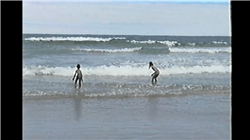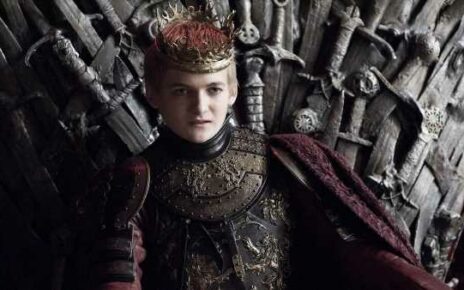Following introspective shorts “Grietas” and “Solos,” Canarian director Alberto Gross Molo recalls his turbulent childhood in his upcoming debut feature “Catorce de Marzo,” a searing look at divorce through the lens of children placed unjustly in the middle.
Selected to participate at Madrid’s 5th ECAM Incubator, the narrative dives into the delicate minds of two siblings forced to determine their fate by choosing between parents, a fraught decision that could further divide their family.
Written by Gross alongside Tomàs Bayo Encontra, Laura Egidos Plaja and Albert Aynés Clapés of Contraria Media and David Aymerich of Ayhe Productions produce the project.
In 2021, “Catorce de Marzo” participated in My First Script at the Zagreb Film Festival and Ekran+, the team attending the Faberllull residency in 2022. It was also a finalist for last year’s Julio Alejandro SGAE Screenplay Award.
Egidos, co-founder of Contraria, spoke with Variety about the project’s allure and forward trajectory.
What attracted you to the project?
How shocking and frivolous the process of a divorce trial is for children. Above all, they’re asked which parent they prefer to live with. When Alberto told us about his experience as a child, we were amazed. Whenever we explain the film, we realize that, in general, people don’t know this happens. They don’t consider how a child experiences a divorce. That’s why it’s so important to make the film from the child’s point of view rather than the parents.
What makes “Catorce de Marzo” the perfect fit for Contraria?
We don’t look for a specific genre or style, but rather that the message of the stories makes an impact and leads the viewer to reflect on a topic that’s important to us.
I think “Catorce de Marzo” does that by making children’s views on divorce visible and showing how these adult disputes affect them. Added to Alberto’s style of portraying situations-very realistic and raw, without sugarcoating-this will make the emotion impact the viewer, leaving them thinking about what they’ve seen.
We’ve produced Alberto’s previous works, so it was natural to continue with his debut.
The material addresses a very upsetting scenario from that age of naivety, in the face of an already intimidating court process. How do you think that will resonate with audiences?
Sometimes, we think that children don’t know, but they do; they understand and care. We want the audience to feel the fear and responsibility that Héctor, the protagonist, has for the decision that he and his little sister have to make. The relationship of these siblings, their innocent love and their bond, is put at stake because of having to make that adult decision that can separate them.
Putting the audience in the children’s shoes can make them wonder if we could do better, not just during a divorce, but in our way of resolving conflicts as adults in general.
The project participated in numerous labs and mentorship programs. How have they helped the concept evolve and what’s next?
It’s been crucial. At Ekran+, we shot a couple of scenes from the film and took the opportunity to test the relationship between characters and the subtext with non-actor children; this was great for us to bring the story closer to the children and experience the scenes from their point of view. The other labs have helped a lot with the rewrites. With the mentorship of Paco Plaza and Marisa F. Armenteros at La Incubadora, we’ve rewritten the latest version, which is solid. Next is to begin financing, starting with television and closing a national distributor and international sales agent.
Read More About:
Source: Read Full Article

